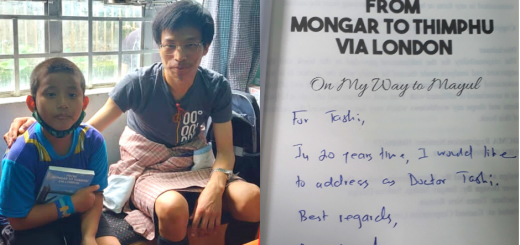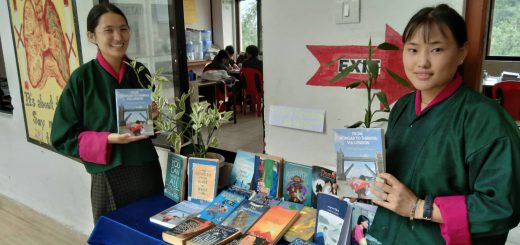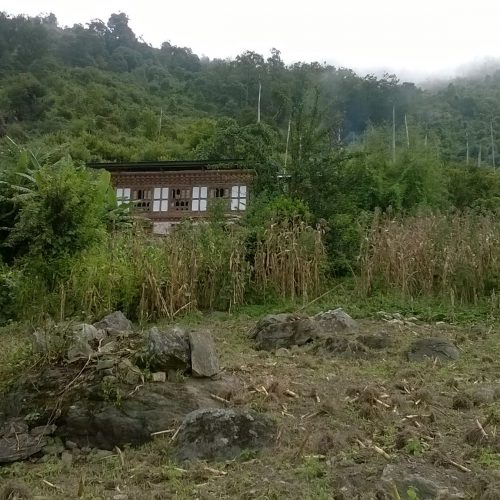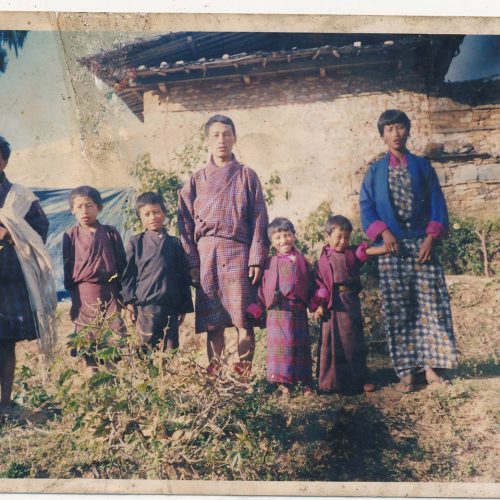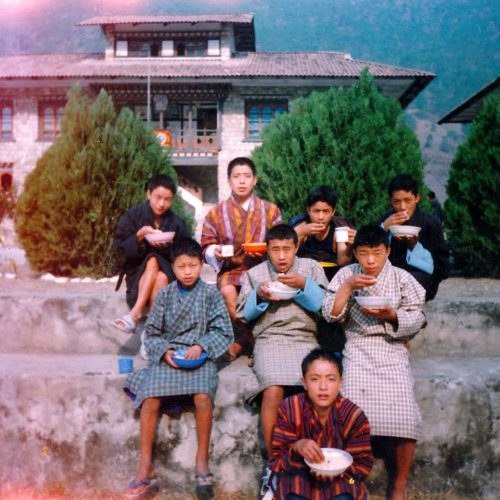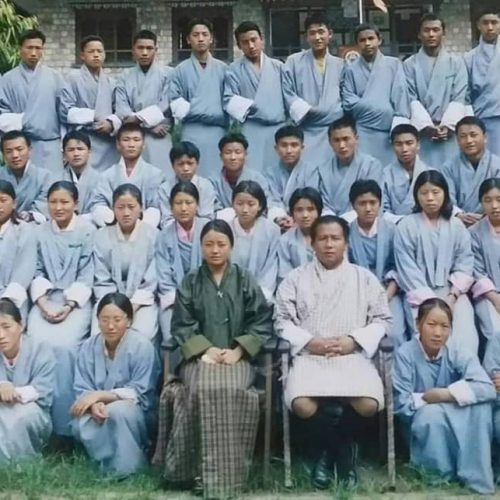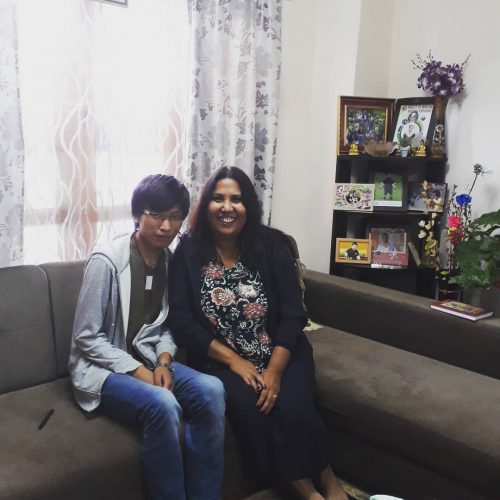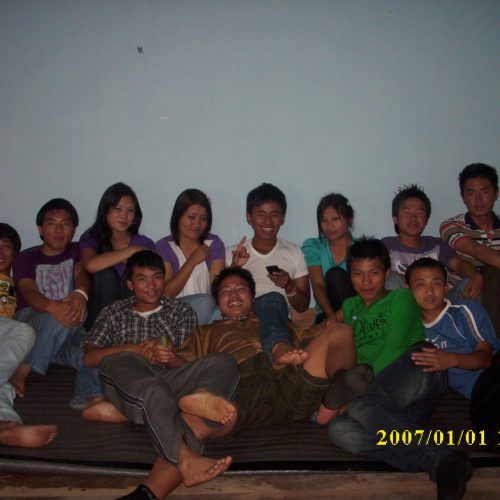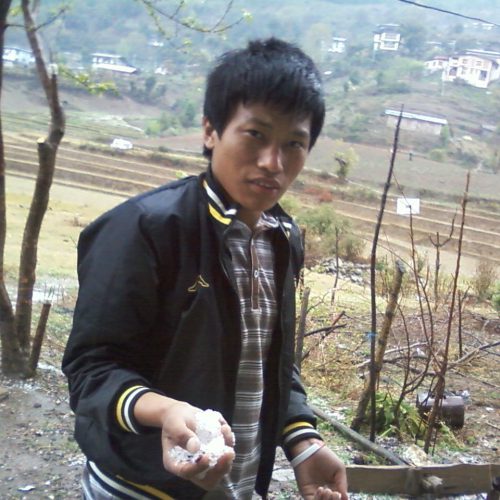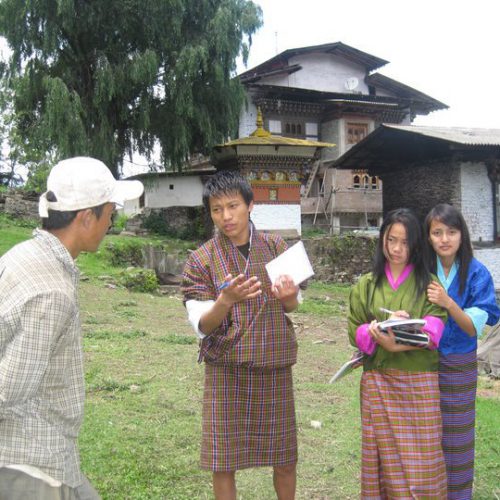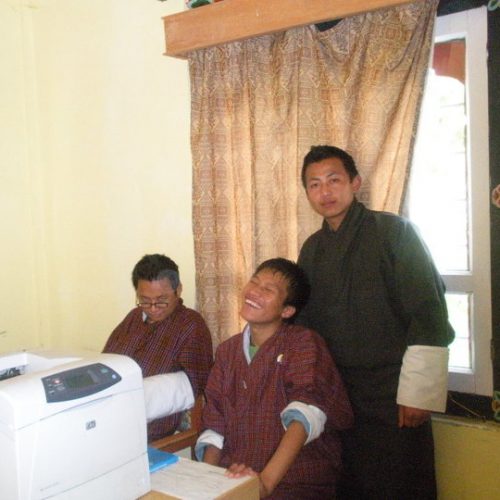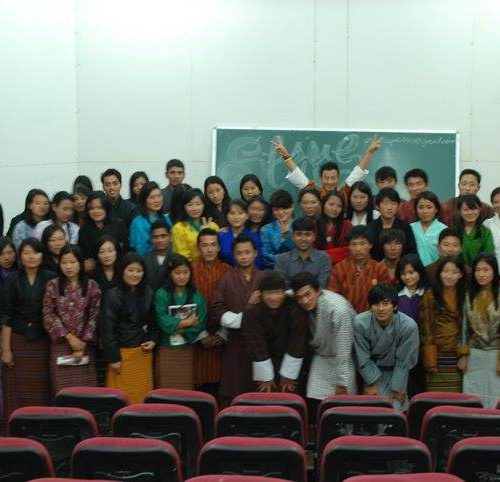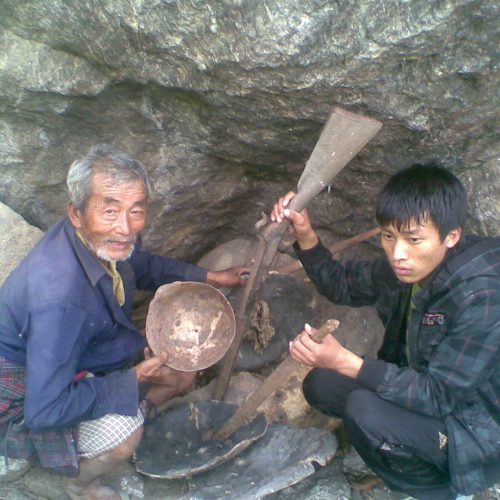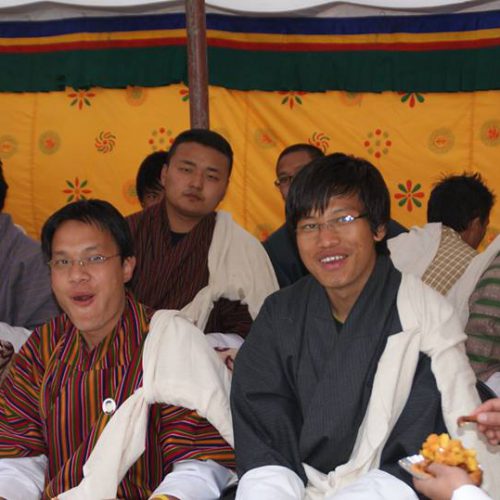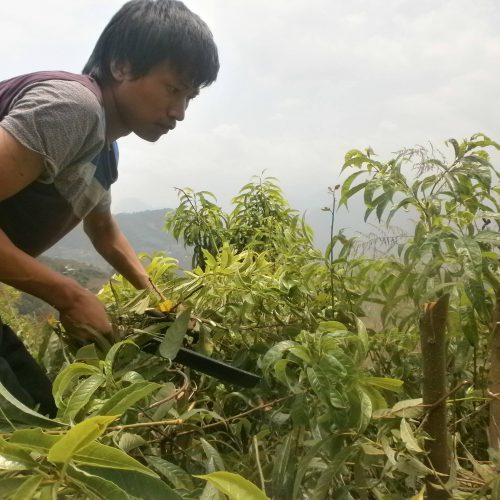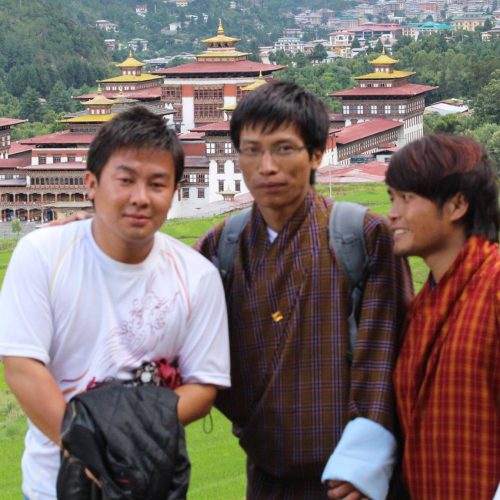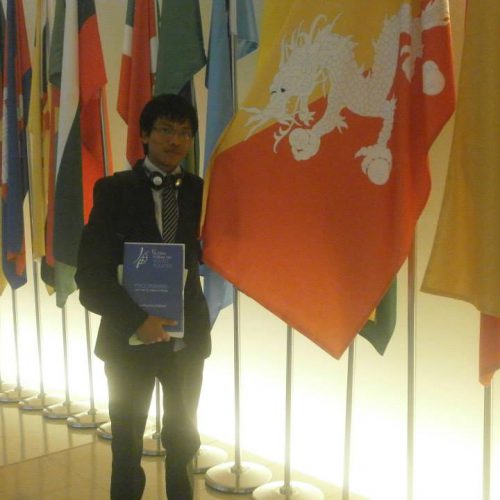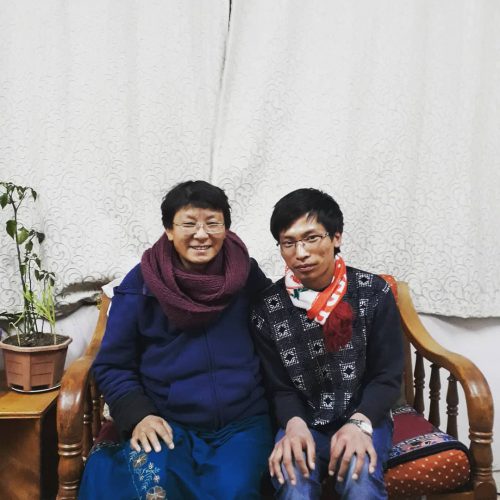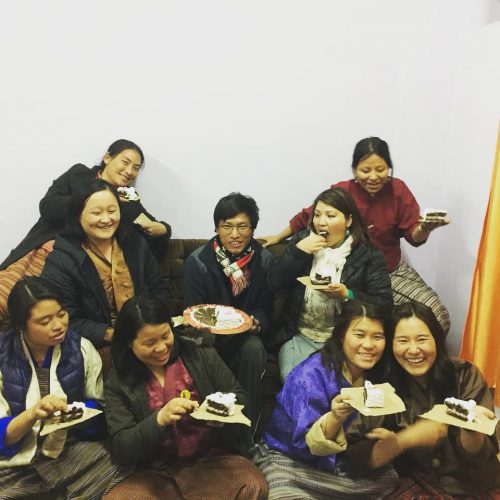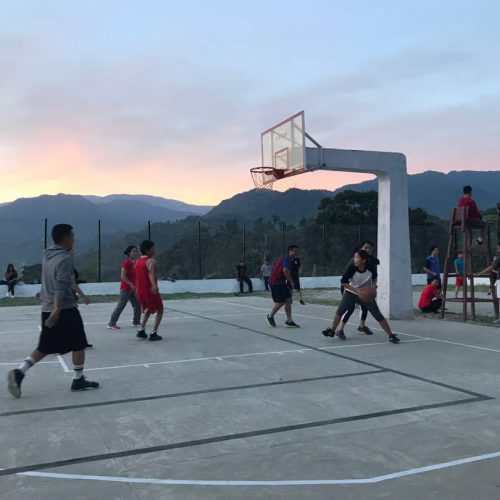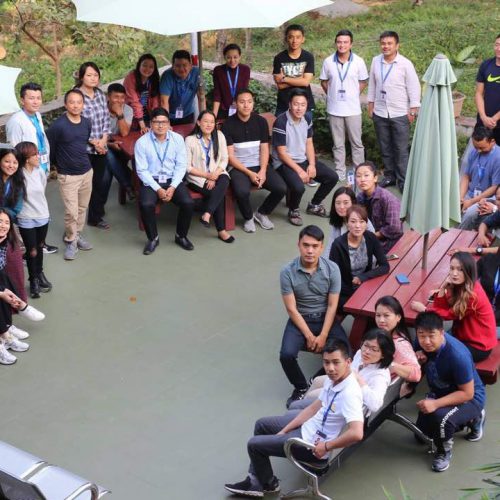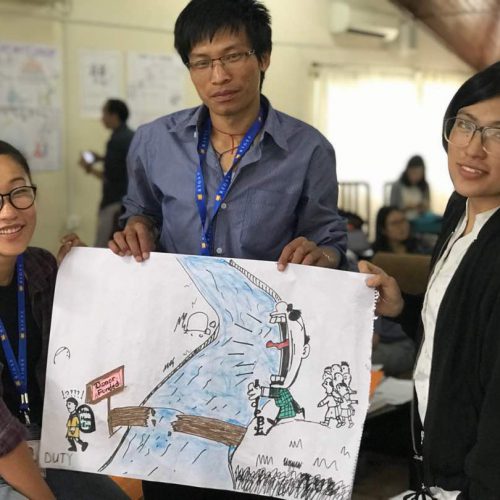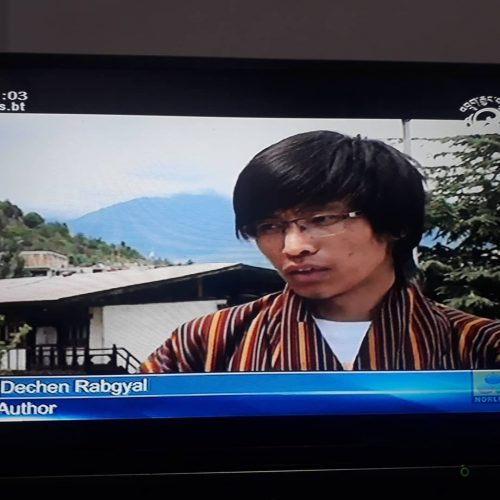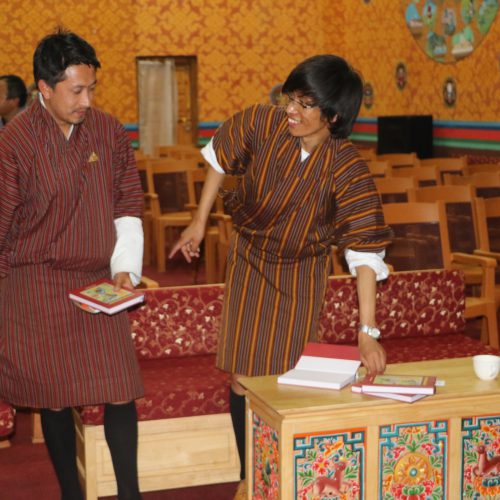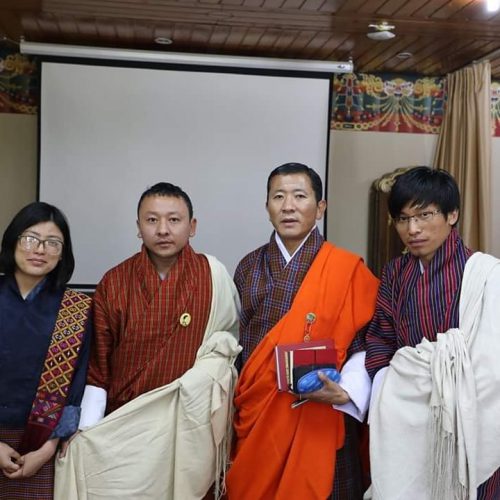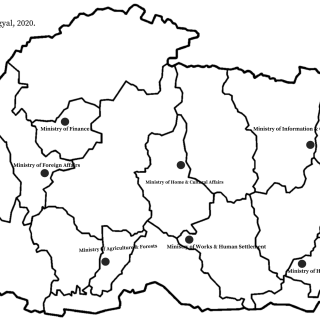Leadership back home is missing – Insights from the book talk on youth civic engagement
Never did I dare to imagine in my school days that I could write a book and give a book talk. While contents and arguments in the book are subject to be tested and validated, enabling conditions and conducive environment created by networks of family, mentors and friends under the farsighted leadership of our benevolent Monarchs emboldens even those born among spades and scythes to dream big. I am deeply indebted!
My debut book titled, “Youth Civic Engagement” captures picture of Bhutan’s evolving polity: political transition from monarchy to democracy; transformation in economic structure as service and industry sectors become integral system of our economy; and evolving cultural practices and belief system as we increasingly integrate into global world. In the mix of it, young people are perceived to be politically apathetic, at least as confirmed by voter turnout; economically vulnerable and exposed as finding a job (right) is a herculean task; and culturally least connected to our respective roots as forces of modernization (westernization) are too tempting to shy away from.
Against this backdrop, the book primarily based on my experiences, tries to explore the importance of policy initiatives and the roles of institutions such as family, school, community and media in nurturing a responsible citizen as young people undergo series of transition from one stage of life to another. Concerted efforts in different areas of youth civic engagement is expected to ensure personal growth, community development and consolidation of our nascent democracy.
Conversation and Discussion: Precursor to Insights
What actually is youth and who constitute youth? As is customary in legal lexicon and common in policy documents, young people between the ages of 12 and 24 years age are generally classified as youth with varying age brackets in different legislations and country contexts. Defining youth based on age is a categorization based on biology. Understood from social lens, youth is about passion, interest, energy and drive. Even at late forty’s, one can still be a youth. Blending the understanding of youth as social group with that of technical categorization based on age would give newer insights in designing comprehensive strategies in intervening in the lives of young people.
Youth engagement in Bhutan is gaining momentum. Starting from National Youth Association of Bhutan (NYAB) in 1970s, which would go on to become the Bhutan Broadcasting Service Corporation (BBSC), the proliferation of formal youth groups associated with different agencies and institution (Youth Initiative (YI) with Bhutan Centre for Media and Democracy (BCMD), Democracy Clubs with Election Commission of Bhutan (ECB) and Youth Volunteers in Action (YVIA) with Bhutan Youth Development Fund (YDF)) and independent groups like Bhutan GNH Youth and Go Youth Go (GYG) are indications of increased youth engagement. Growing interest of volunteerism and youth led initiatives are manifestation of progress of youth engagement. However, compartmentalization and working in silos among different youth groups resulting to duplication of activities and lack of unified voice are some of the low sides of youth engagement. Further, low voter turnout and perceived disinterest in old age community based culture are seen as inadequate engagement of young people. Revamping civic education programmes (ECB) and school curricula (Ministry of Education) are expected to raise civic consciousness among young Bhutanese.
‘Initiative’ and ‘responsibility’ were central theme of the interaction among some 70 participants/attendees. On the institutional front, the mandate of Department of Youth and Sports (DoYS) was highlighted. Lack of key policy initiative, specifically National Youth Action Plan was raised. Allocating required financial resources, enhancing human resource capacity and cross-sectoral collaboration among key stakeholders are expected to address existing gap between promise and delivery. Nonetheless, initiatives such as School Agriculture Programme are being undertaken with an aim to give young people knowledge and instill in them the interest to pursue agricultural entrepreneurship. If successful, this initiative would yield two fold benefits: alleviate youth unemployment issue and contribute to food security.
At the individual level, one should be receptive and forthcoming. Staying oneself informed of community events and national concerns, discussing community issues with friends and colleagues and carrying out local actions and community projects such as filling pot holes, picking garbage are some of the initiatives an individual can undertake without having to wait for government directives. Running parallel to it, adventurous mind would instill courage and confidence in young people to pursue entrepreneurship thus helping alleviate Bhutan’s growing youth unemployment. At the other end, Government raising remuneration for manual labour is expected to encourage young people to pursue vocational career (as some Bhutanese do carry out physical and manual labour in Australia). Policy shift is need of the time!
One should not resign to hurdles! As young people transit from youth to adulthood and as they participate in broader communities, one should not give up when encountered with difficulties and hurdles. Reflecting on one’s everyday actions and working to improve it in consonance with larger societal interest would help one grow from strength to strength as young people seek to become an active member of the larger community. At the same time, as young people transit from school to work life, change of place and having to shoulder different job responsibilities, as a stranger, feeling of isolation vis-à-vis disconnect from the community (place) act as a stumbling block to engage in civic life. These are inevitable! That having said, as information, communication and technology (ICT) become more sophisticated and its reach gets expanded, staying connected with one’s friends, family and close circle would help during such transition. In the meantime, one can seek membership (not necessarily by following formal registration and application procedures) in one’s new found community, be it voluntary community association or youth groups.
His Excellency, the Speaker, who graced the event, shared a compelling narrative. Basing his assertions on recently published Population and Housing Census of Bhutan (PHCB) 2017, His Excellency made a poignant observation that there is urban explosion as majority of Bhutanese aspire to migrate to popular and growing urban towns of Thimphu, Paro and Phuntsholing. On the other hand, “Leadership back home is missing”, His Excellency opined. He went on to pose a rhetorical question, “Who is there in the village to lead our village communities?” Civic engagement entail participation in community affairs and by this, I inferred that His Excellency’s emphasis on missing leadership back home meant the younger generation to consider village communities as an integral part of Bhutan’s survival as an independent country. Narrating his personal experiences of hands (axes and spades) that built our national highways and of getting a salary of Nu. 150.00 (paid in Tikchung) during his service as a teacher in 1973, His Excellency made three statements:
- Know that we are Bhutanese (our history and contribution made by our ancestors),
- Project one’s and country’s future and
- Be mindful of one’s behaviour and commitments.
Being analytical, reading and staying informed and communicating ideas are expected to help young people become responsible members of a community and conscious citizens of the country.
While His Excellency’s remarks on “Leadership back home” was in the context of fast declining interest in the affairs and lives of village communities, by affording broader interpretation of the term “home”, its understanding can be extended to our respective homes (be it in the urban centres or rural hamlets) and everyday work places. Then, can we also suggest that we are missing leadership in all spheres of governance. His Majesty’s remarks during the 13th Convocation of Royal University of Bhutan about “70: 30 trap” certainly indicated that we are missing important components of leadership – responsibility, commitment and focus. Bhutanese youth are at a crossroad. However, concerted and sustained efforts in the areas of civic engagement, not necessarily confining to my perspectives, but constant dialogue and communication at all levels of governance should help in nurturing responsible citizens mindful of their own conduct as well as conscious of national objectives and aspirations.

